From atma kathas that revisit the horrors of casteism to brutally honest fiction, here are five new Dalit translations that should be on your reading list

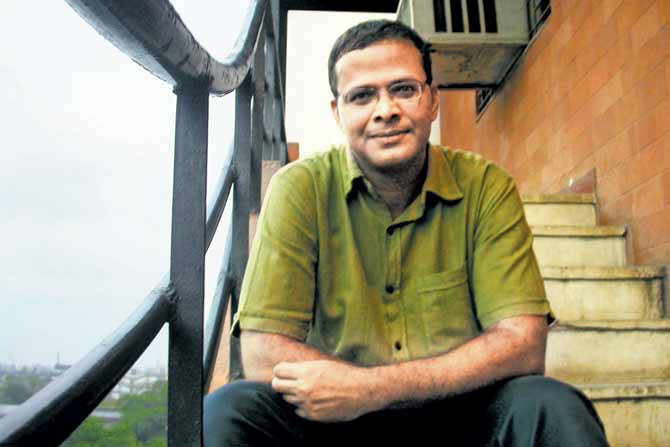
This week saw Westland Publications announce that it had acquired the publishing rights to noted Bengali writer Manoranjan Bapari's works. The news augurs well for Dalit literature, which is increasingly being recognised by mainstream English publishers. Oxford University Press — a pioneer in translations — Speaking Tiger and Niyogi Books have already released six translated works this year, and more are in the pipeline. "Dalit literature is no longer a single tree, but an ecosystem and we should think of Eknath Awad's memoir [Strike A Blow To Change The World] and the poems of Hira Bansode and Premanand Gajvee's plays and works by so many others, as part of that rich wild forest," says Jerry Pinto, who translated two noted Dalit texts last month. Delhi-based translator Deeba Zafir describes Dalit literature as a "counter-canon" to the realism portrayed by Indian writers, and hence, cites the urgency for English readers to be exposed to more such powerful works. We bring you our top five picks of recently-released titles by writers from across India, and why they need to be on your book shelf.
ADVERTISEMENT
My Childhood On My Shoulders
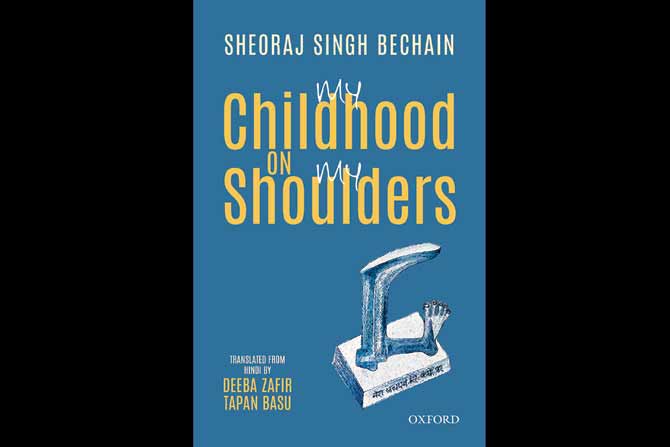
By Sheoraj Singh Bechain
Translated from Hindi by Deeba Zafir and Tapan Basu

Sheoraj Singh Bechain
Today a professor at the department of Hindi in the University of Delhi, Bechain's life story, as described by his translator Zafir, is one that would "shock the urban middle-class". His tale is at the heart of My Childhood On My Shoulders, where he writes of the burden of being born into a family of tanners (chamar) in Uttar Pradesh. It would take years of hardship — Bechain was traded by his stepfather to serve as a bonded labourer; whipped for nurturing a love for education; earning his living by polishing shoes and serving in hotels — before he succeeded in getting enrolled into a school. "The autobiography covers ten years of Bechain's life, from the age of five to 15. It exposes us to the world of the chamars — their great skill with their job despite the revulsion they feel while working with dead skin, their sub-culture and how they have an alternative pantheon of gods. There is 'terrible beauty' in this story," says Zafir.
When I Hid My Caste

By Baburao Bagul
Translated from Marathi by Jerry Pinto
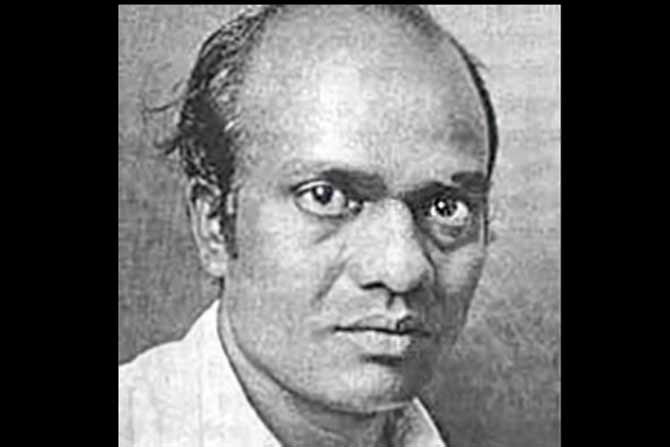 Baburao Bagul
Baburao Bagul
Bagul's debut collection of short stories, originally published as Jevha Mi Jaat Chorli Hoti (1963), is said to have revolutionised not only Dalit, but all Marathi literature, bringing to it a radical realism by exposing the pain and horror of the Dalit experience. The book covers a gamut of stories of people living on the margins, from Damu, the village Mahar, who demands the right to perform a religious masque — a privilege enjoyed only by the upper castes — thus, disrupting the village order, to Jaichand Rathod, who revolts against his parents' wishes and refuses to take up the caste-enforced task of manual scavenging. "Like so much of my reading in Marathi, I was led to Bagul through anthologies and translations into English. They were powerful stories, they taught me about a world that existed right next to mine and of which I had not been aware. Literature has many uses; one of them is to allow us to see what it is like to walk in another person's shoes. We all need this so that we may be shaken out of our perception that everyone is like us, thinks like us, acts like us. People don't. A good book gives the kaleidoscope a shake and we see new patterns and perspectives,"
says Pinto.
Just One Word
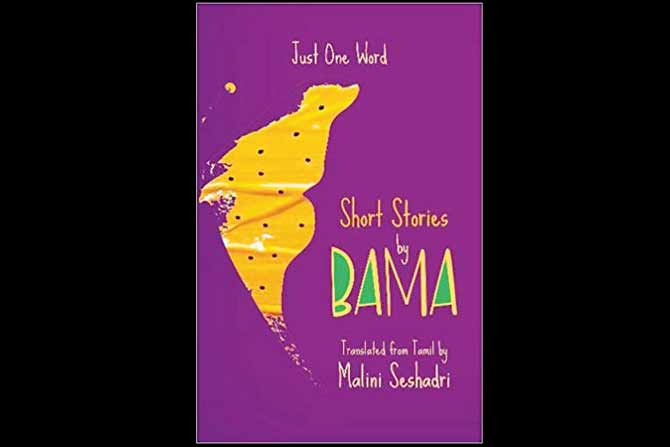
By Bama Faustina
Translated from Tamil by Malini Seshadri
 Bama Faustina
Bama Faustina
With Just One Word, a collection of short stories, Bama, whose work embodies Dalit feminism, takes her readers into spaces that appear artless, but where hate and prejudice reside. "There is nothing contrived about Bama's writing and she doesn't write for the sake of effect. She is writing because she has the urge to put out her ideas. Even in her fiction, we see her own experiences seep in," says Seshadri. For this particular collection, Seshadri says they selected stories that cover a range of themes. "Since she is a teacher by profession, her vision is coloured by her classroom experiences. So, there are some stories in that category. Also, because she has lived in a semi-rural set-up, she has got the pulse of the village life, the villagers, the way they talk and think, and the issues that are central to them. We also see stories that are auto-biographical," the translator adds. What Seshadri enjoys most about Bama's work is that she never philosophizes. She presents only reality, through her fiction. "And we enjoy the privilege of experiencing this life that Bama has witnessed," she says.
Bheda
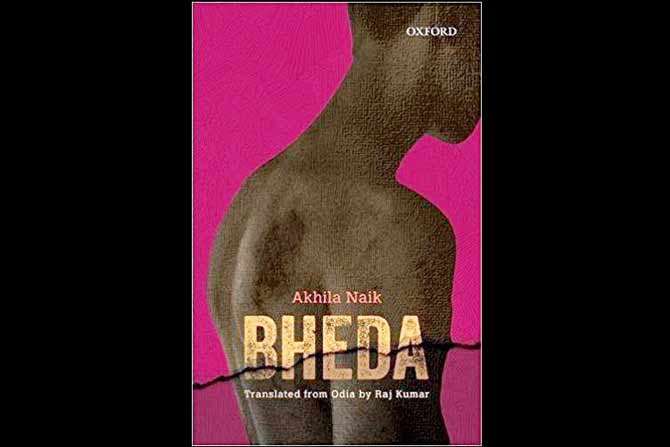
by Akhila Nayak
Translated from Odiya by Raj Kumar

Akhila Nayak
Naik's Bheda (2010) enjoys the distinction of being the first Odiya Dalit novel. Set in the remote villages of the Kalahandi district in western Odisha, which is mired in poverty, drought, famine, child trade, and malnutrition, the book traces the lives of the educated members of the Dalit community, who become conscious of their plight and rise up in revolt. Threatened by this uprising, the upper castes unite to take revenge. The title of the book itself means "a sense of difference", which implies the differences that exist among people in terms of caste, class, or race. "It's a powerful and radical piece of work. The book is not just about caste, but also about many other things concerning the Dalits, including the right to education, fight against corruption, and the need to save ecology," says Kumar. "In Odisha, caste issues have hardly been discussed before, and a book like this, actually helps engage in conversations concerning Dalits."
Samboli! Beware!

By Lakshman
Translated from Kannada by Susheela Punitha
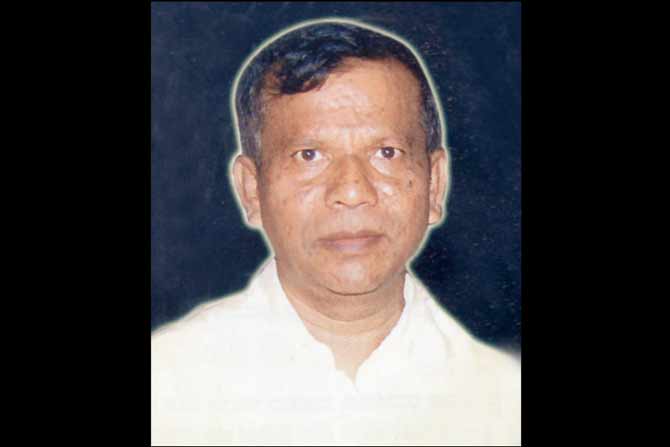
Lakshman
Punitha, who is also the winner of the Sahitya Akademi's first ever translation award, prefers to call Lakshman's Samboli! Beware! an "atma katha," which she says literally means "a story of the soul". "Dalit writers tend to mostly talk about themselves and how their self-worth has been crushed. But, what I found different about this book, which within the Western framework would otherwise be considered an autobiography, is that Lakshman's self-story also gives us a glimpse of his culture." The market in his village is one case in point. "While we think of the market as a place where people buy and sell for money, here, people would come together to perform or stage their plays," she says, adding that she found these cultural nuances of his text, fascinating. In Samboli! Beware!, Lakshman writes of being born into a family of scavengers (Madiga community) — considered to be the lowest of lowest caste among the Dalits — and how he is once beaten up for touching the cycle of his Brahmin teacher, when the same act goes unquestioned if another child of a higher caste does it. He does manage to break away from the shackles of caste, and gets into activism. "He believes in fighting for his people, even though he cannot see success. I like that spirit," she adds.
Catch up on all the latest Crime, National, International and Hatke news here. Also, download the new mid-day Android and iOS apps to get latest updates
 Subscribe today by clicking the link and stay updated with the latest news!" Click here!
Subscribe today by clicking the link and stay updated with the latest news!" Click here!







